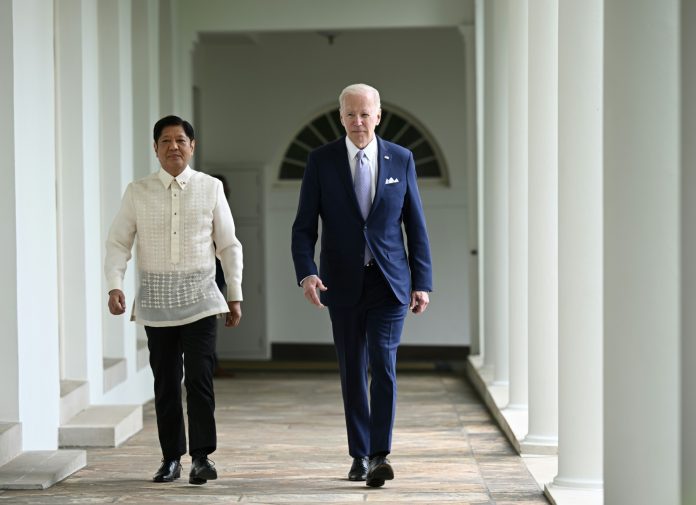Human rights group Karapatan said Philippine president Ferdinand Marcos Jr.’s meeting with US President Joe Biden only deepens the “unequal relations” between the two governments, to the detriment of the Filipino people’s interest.
The group accused Marcos of doing the US government’s bidding in ensuring its strategic military and political interests in the Asia-Pacific region.
“The Marcos administration, in turn, continues to receive more funds from the US government for military and police operations for counter-insurgency campaigns that result in extrajudicial killings, enforced disappearances, torture, arbitrary arrests and detention, bombings and forced evacuations of peasant and indigenous communities, among the host of violations of human rights and international humanitarian law,” read a Karapatan statement.
It said the funds fuel the US counter-insurgency objectives in the Philippines to quell political dissent and the exercise of rights.
The human rights group said the Biden-Marcos meeting “signals the Philippine government’s unequivocal pivot towards strategic US interests, which has grave impacts on national sovereignty and the Filipino people’s rights.”
Marcos, however, said his government would not allow the Philippines to become a “staging post” for military action.
Manila recently granted Washington access to more Filipino military bases as the allies seek to counter China’s growing assertiveness in the region and its sweeping claims over disputed waters, islands and shoals.
“We will not encourage any provocative action that will involve the Philippines by any other country,” Marcos told reporters Sunday aboard a plane en route to Washington.
“We will not allow the Philippines to be used as a staging post for any kind of military action.”
Marcos’s visit comes after the United States called on China to stop “provocative and unsafe conduct” in the contested South China Sea following a near-collision with a Philippine coast guard vessel.
“We call upon Beijing to desist from its provocative and unsafe conduct,” US State Department spokesman Matthew Miller said on Saturday, adding that any attack on Philippine armed forces would trigger a US response. Manila and Washington are bound by a 1951 mutual defence pact.
The April 23 incident was “a near-crash and that … can cause casualties on both sides,” Marcos said on the flight, according to a statement by the Philippine presidential palace.
“That’s exactly what we want to avoid.”
The Philippine leader urged China to follow through on his agreement with President Xi Jinping, reached earlier this year in Beijing, to set up a “direct communication mechanism” on issues involving overlapping claims in the South China Sea.
While Manila has formed its team, Beijing has yet to do the same, Marcos said.
Beijing claims sovereignty over almost the entire South China Sea, ignoring an international court ruling that its assertion has no legal basis.
Marcos has said he will not let China trample on the Philippines’ rights in the sea, and has gravitated towards the United States as he seeks to strengthen defence ties.
Last month, the Philippines identified four military bases — in addition to five existing sites — to which US forces will have access, including one near the disputed Spratly Islands and two facing Taiwan. – with a report from Agence France Presse









